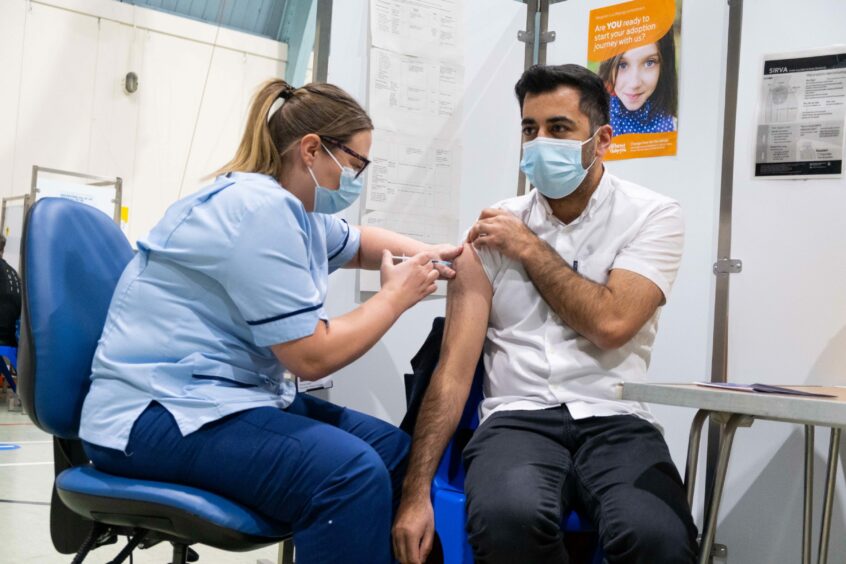A new Covid variant has been detected in the UK.
Omicron XE has so far been detected in 763 people across the UK, at a time when case numbers continue to grow.
The rise in cases is thought to be attributed to the increase in mixing following the relaxation of Covid rules across Scotland and the UK.
But what is the XE variant? What are the symptoms? And how worried should we be about it?
We’re answering all your questions about the new strain of Omicron.
What is Omicron XE?
Omicron XE combines two previous strains of the virus: Omicron BA.1, which emerged in late 2021, and the newer BA.2, currently the country’s dominant variant.
This is known as a “recombinant”: simply a combination of two previously existing strains of a virus.

This occurs when a cell is infected with two related viruses at the same time, whose genetic material could mix as they replicate.
How transmissible and severe is the new variant?
According to the UK Health Security Agency (UKHSA), it is currently not known how transmissible and severe Omicron XE is compared with previous variants.
According to the UK Government: “Using the most recent data up to 16 March 2022, XE has a growth rate 9.8% above that of BA.2.
“As this estimate has not remained consistent as new data have been added, it
cannot yet be interpreted as an estimate of growth advantage for the recombinant.”

This means the XE variant seems to be more transmissible than previous strains. However, more research will be needed for a conclusive result.
Of the 763 cases in the UK so far, 637 are in England. The majority of these are concentrated in the east of England, London, and the south east.
It is currently unclear how many – if any – of the cases are present in Scotland.
What are the symptoms?
So far, symptoms of Omicron XE include typical cold symptoms, particularly in those who are vaccinated, including:
- a runny nose
- headache
- sneezing
- a sore throat
- fatigue
However, shortness of breath, loss of appetite, diarrhoea, feeling sick or being sick could also be signs of the new variant.
Will the vaccines work against Omicron XE?
The UKHSA says more research is needed before understanding how effective vaccines will be at combatting the new variant.
Babatunde Olowokure, the World Health Organisation’s (WHO) western Pacific emergency director, said research on disease severity, impact on vaccine performance and risk of reinfection is currently underway.











